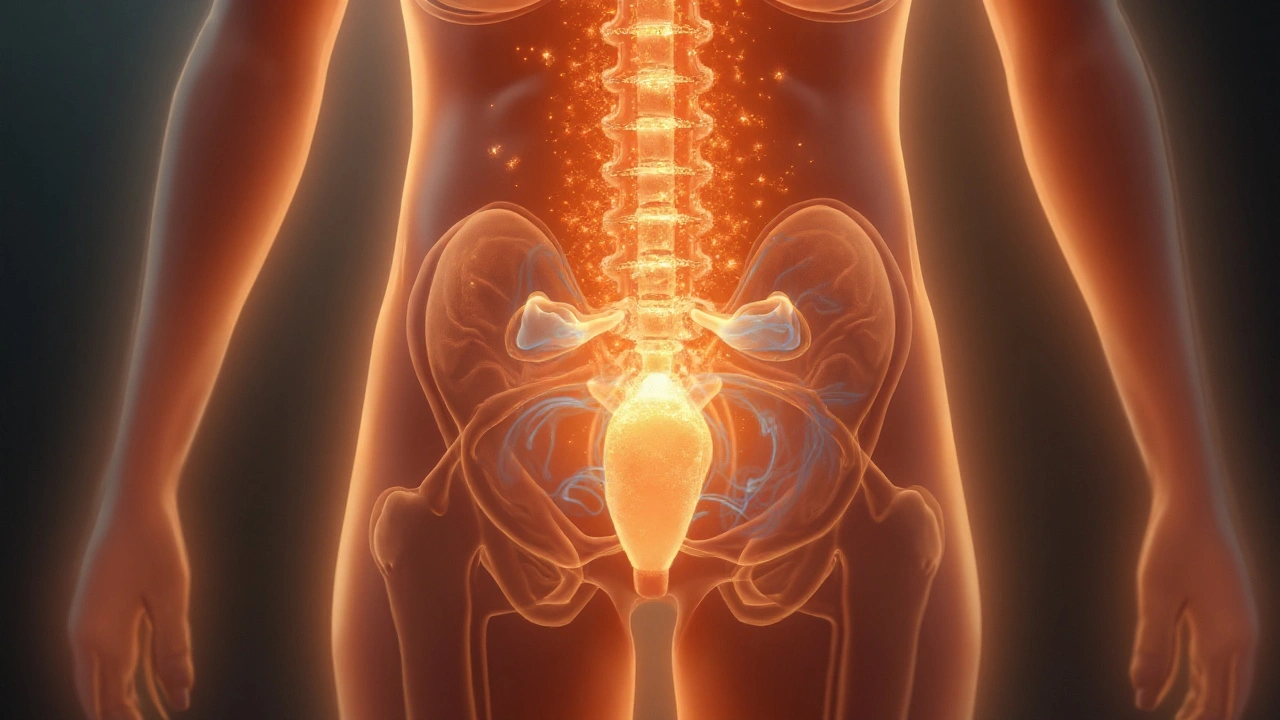
Understanding Bladder and Urinary Tract Muscle Spasms in Multiple Sclerosis
Explore why muscle spasms in the bladder and urinary tract happen in multiple sclerosis, how they’re diagnosed, and the most effective treatment options.
25 Sep 2025Detrusor overactivity means the bladder muscle squeezes too often or too hard. When this happens, you feel a sudden, strong need to pee, sometimes even if the bladder isn’t full. It’s a common reason for overactive bladder and can make everyday life feel stressful.
Many things can trigger the detrusor muscle to overreact. Infections, nerve problems, and certain medicines are frequent culprits. Age‑related changes can also make the bladder less stable. Even things like caffeine, alcohol, or spicy foods may irritate the bladder and worsen symptoms.
Typical signs include a rapid urge to go, leaking urine before you reach the bathroom, and needing to go more often than usual—often 8 times or more in a day. If you notice these patterns, it’s worth talking to a healthcare professional. Early detection can prevent bigger problems later.
Start by watching what you drink. Cutting back on caffeine and alcohol can reduce urgency. Try to empty your bladder on a schedule—every 3‑4 hours—even if you don’t feel the urge. Strengthening pelvic floor muscles with Kegel exercises also gives the bladder more control.Weight management matters too. Extra belly fat puts pressure on the bladder, making it work harder. A balanced diet with plenty of fiber helps avoid constipation, which can push on the bladder and worsen symptoms.
If lifestyle changes aren’t enough, doctors may suggest oral meds that calm the detrusor muscle. Anticholinergics and beta‑3 agonists are the most common. In some cases, bladder training or physical therapy can teach the muscles to behave better. For severe cases, Botox injections or nerve stimulation might be considered.
Call your doctor if you have frequent leaks, pain while urinating, or notice blood in the urine. These could signal infection or other issues that need treatment. A simple bladder scan or urodynamic test can show exactly how the detrusor is working.Don’t ignore the problem—early treatment can improve quality of life and prevent complications like urinary infections.
Following these steps can give you more control over sudden urges and help you get back to a normal routine without constant worry about the bathroom.

Explore why muscle spasms in the bladder and urinary tract happen in multiple sclerosis, how they’re diagnosed, and the most effective treatment options.
25 Sep 2025